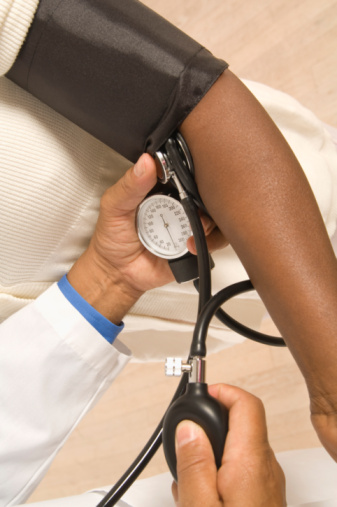 Black patients preoccupied with racial concerns have higher blood pressure than those who aren’t, according to results of new Johns Hopkins-led research. The findings suggest that heightened race consciousness could at least in part account for the disproportionately high rate of hypertension in black Americans — the highest prevalence of any group in the United States and one of the highest rates in the world.
Black patients preoccupied with racial concerns have higher blood pressure than those who aren’t, according to results of new Johns Hopkins-led research. The findings suggest that heightened race consciousness could at least in part account for the disproportionately high rate of hypertension in black Americans — the highest prevalence of any group in the United States and one of the highest rates in the world.
“A preoccupation with race among blacks leads to hyper-vigilance, a heightened awareness of their stigmatized status in society and a feeling that they need to watch their backs constantly,” says Lisa A. Cooper, M.D., M.P.H., a professor in the Division of General Internal Medicine at the Johns Hopkins University School of Medicine and senior author of the study described online in theAmerican Journal of Hypertension. “African-Americans have higher blood pressure, and it has been difficult to explain why this is true. It doesn’t appear to be genetic, and while things like diet, exercise and reduced access to health care may contribute, we think that a tense social environment, the sense of being treated differently because of your race, could also possibly explain some of what’s behind the higher rates.”
Cooper says the issue of such hyper-vigilance and race consciousness has drawn more public attention in the wake of the killing of Trayvon Martin, an unarmed black teenager, in Florida. Her own African-American son, she says, is very aware of his surroundings.
“It’s stressful for him to walk around thinking at anytime someone might think he’s dong something wrong just because of his race,” she says. “That’s just something he lives with. If you don’t live with it, maybe it’s hard to understand it. It’s something people often don’t want to talk about.”
As part of ongoing research into doctor-patient relationships and racial disparities, Cooper and her colleagues surveyed 266 patients in urban health clinics in Baltimore between September 2003 and August 2005. Sixty-two percent of the patients were black. To test for race consciousness, they used the 2002 Behavioral Risk Factor Surveillance System “Reactions to Race” module developed by the U.S. Centers for Disease Control and Prevention. Patients — both black and white — were asked how often they thought about their race.






